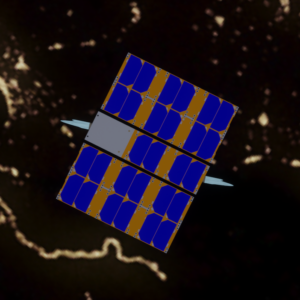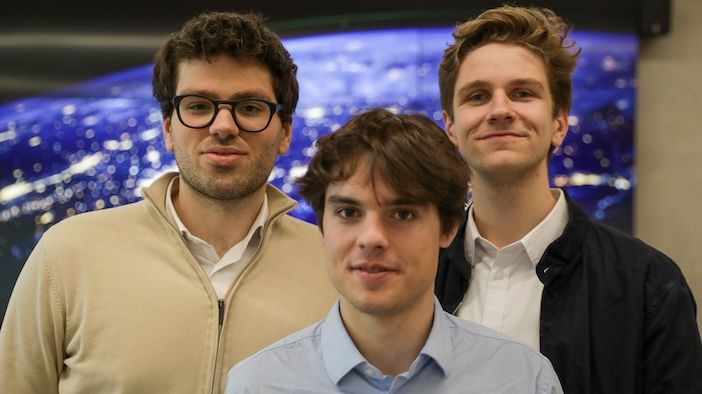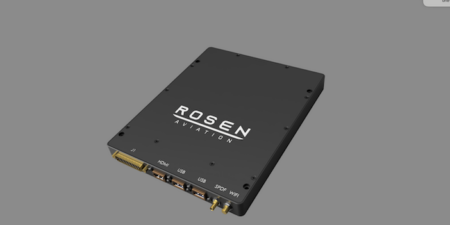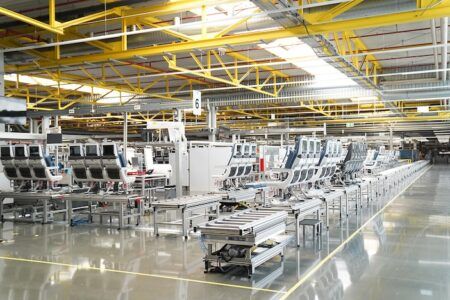Three aerospace engineering students at the UK’s University of Southampton have developed a novel Attitude and Orbit Control System (AOCS) concept, with the aim of simplifying satellite control, to yield cost and reliability benefits.
The students have developed the concept under the name Meta Futura Aerospace – from the Latin ‘meta’ meaning ‘beyond’ or ‘transcending’ and ‘futura’ meaning future – with a key technology being Meta Flex, a system that simplifies satellite control. Meta Futura is one of the seven startups which are part of the Future Worlds Cohort, an intensive programme at the University of Southampton which accelerates startups through mentoring, support, and introductions to key networks.
The team, all co-founders of Meta Futura, comprises Pedro Rodriguez Lopez (21) from Spain, Marcin Badowski (23) from Poland, and Fabrizio Pisani (22) from Italy.
Pedro Rodriguez Lopez explained the technology: “The space industry is increasingly embracing smaller satellites but, despite their size, all of these satellites still require precise movement and orientation in space, which is essential for effective communication with Earth. This enables people to connect in the most remote locations, navigate with GPS and provide critical climate data.

“Despite the miniaturisation of satellites, they still rely on outdated and bulky systems. By developing advanced thrust-vectoring control systems, we aim to enhance satellite mobility and precision, making space technology more accessible and economical for companies and space agencies. Our mission is to transform satellite navigation and expand the use of gimballing technology in space, from sensor pointing to robotics.”
The team of three aerospace engineering students come from across Europe and met in the first year of their degree at the University of Southampton. They found common ground in their shared enthusiasm for space exploration and development.
Marcin Badowski continued the story: “The problem is that current systems utilise eight or more thrusters. This approach is complex, heavy, bulky, and therefore costly. With the dominating trend in the industry shifting towards small satellites, this solution is no longer compatible, as it is extremely difficult to integrate into such small satellites. Our system uses only two thrusters and can match the capabilities of traditional systems while reducing complexity, mass, volume, and cost. This efficiency is made possible through our advanced thrust-vectoring technology. Moreover, our design’s minimalism and frictionless operation enhance reliability by reducing potential failure points.”
Lopez concludes: “Meta Futura’s mission is to transform satellite manoeuvrability, making space technology not just more accessible, but also significantly more efficient and precise. We envision a future where satellites navigate with unprecedented agility, enabling a leap forward in connectivity, navigation, and environmental monitoring.”
The team receives a boost through being part of the Future Worlds programme, which has a track record of success. Three of the programme’s recent alumni have been listed by ‘Forbes 30 under 30’, with their businesses receiving awards and funding from prestigious investors, with over £55 million being raised since 2020.
Ben Clark, director of Future Worlds at the University of Southampton, added: “Future Worlds supports the next generation of talent. Our founders go on not only to gain millions of pounds of investment, but to win awards, solve enormous problems, and change lives for the better through their innovations. These founders are addressing the biggest challenges we are facing today; they are bold, creative and determined to make their businesses a massive success, so we are very proud to help them on their journey.”
The Meta Futura team will be unveiling their innovation at the Future Worlds Demo Day on Wednesday 12th June, part of London Tech Week.





